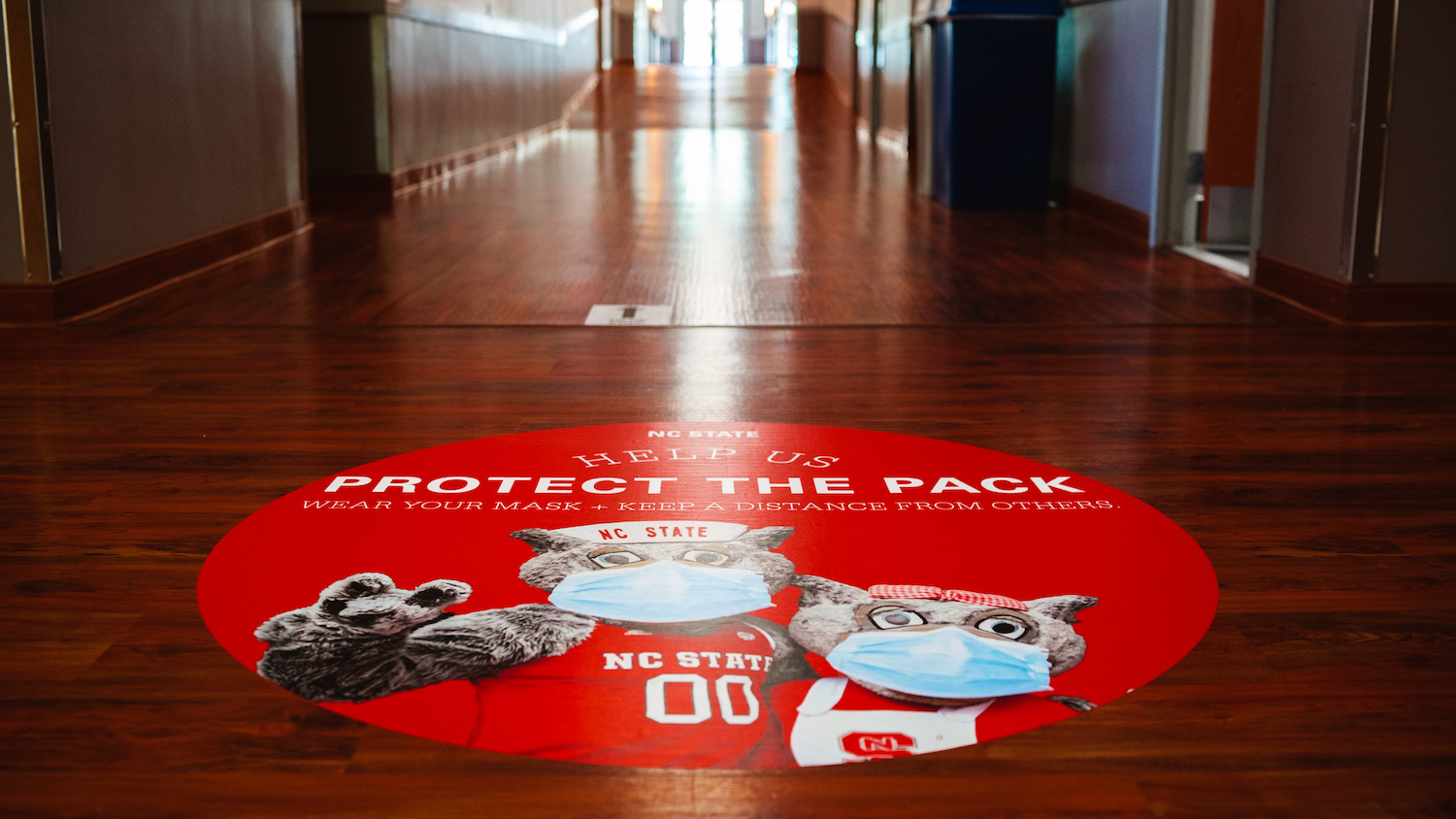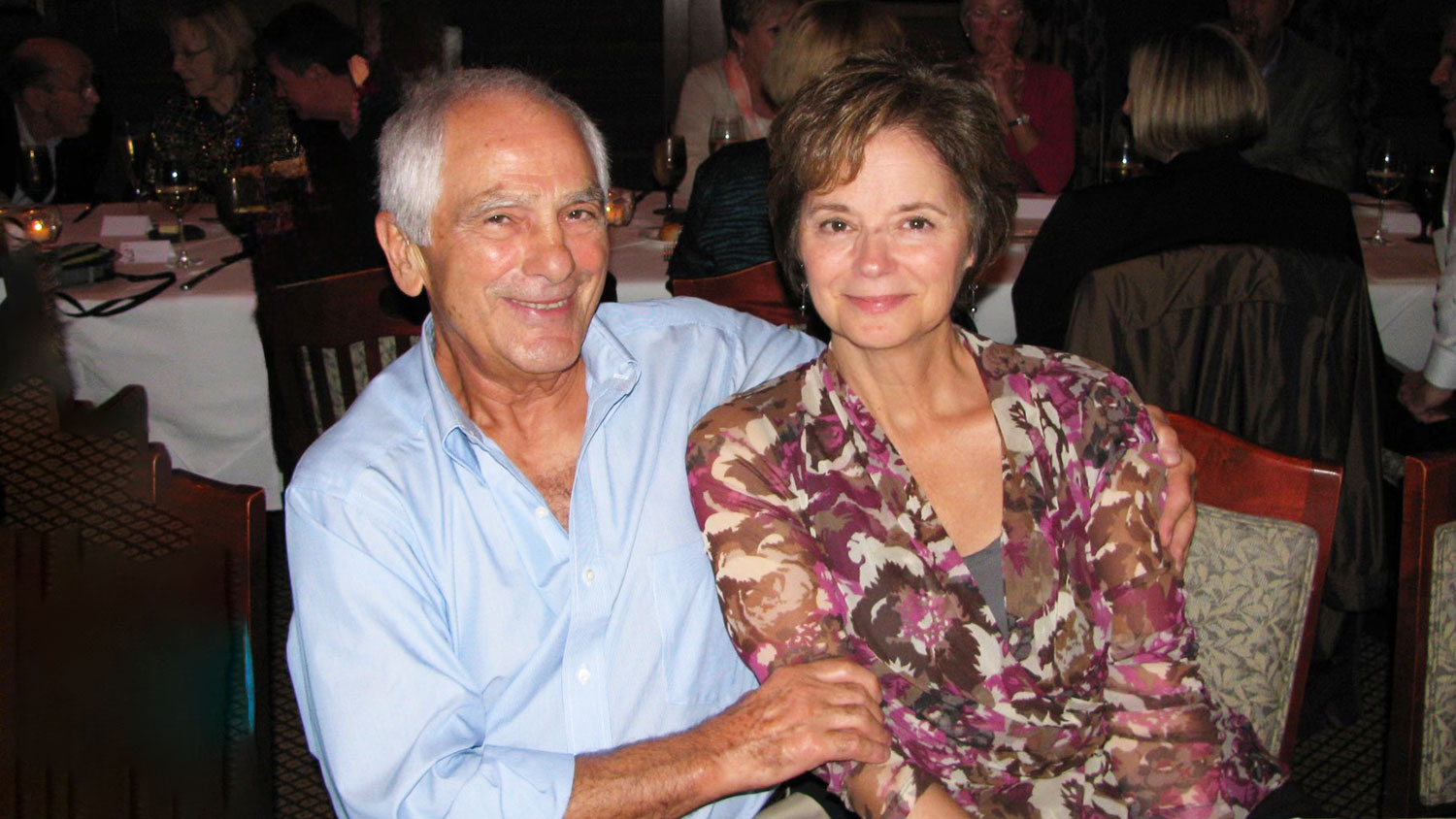Thought Leadership in the Media
Poole College esteemed faculty members contribute to journals, studies and news outlets outside of their work at NC State.

The Atlantic | February 18, 2021
Stacy Wood, professor of marketing, is concerned about propositions of skipping or postponing second COVID-19 vaccines to protect the nation’s supply.
“As a scientist, I’m delighted to hear that [other scientists are] working continually to improve the recommendations on this very important issue,” said Wood. “But as a marketer who is working to try and persuade the vaccine-hesitant, I’m watching my task become that much harder.”
CNBC | February 18, 2021
Rob Handfield, professor of operations and supply chain management, discussed the logistical challenges of vaccine distribution and why certain states are less effective in distribution than others.
“Certain states have never done this level of deployment of a vaccine this quickly,” said Handfield. “Many of them were not prepared to be able to do that.”
Nikkei Asia | February 18, 2021
Rob Handfield, professor of operations and supply chain management, found flaws in the logistics, nonuniform tracking and coordination of the COVID-19 vaccines in the U.S.
“There’s a lack of integration between the allocation of the doses, the scheduling of the patients and the location of the vaccinations,” said Handfield.
“It’s more difficult to roll out, and especially to rural areas [and] tropical areas.”
Poets & Quants | February 12, 2021
Steve Allen, interim associate dean of academic programs and professor of economics, sees the importance of incorporating STEM into the Jenkins MBA Program classroom because of the strong programs at NC State and the appeal to international students.
“Especially over the last four years, we have had real challenges with the international students who come here,” said Allen. “They read about other schools becoming STEM-designated and naturally they started asking.”
Forbes | February 12, 2021
Jessica Thomas, director of the Business Sustainability Collaborative and co-founder of B Academics, has seen students and companies mutually benefit from collaborations at the NC State University B Corp Clinic.
“It’s a combination of a very clear and ambitious vision for the movement, and a comprehensive and clear framework for explaining what it means to have a strong impact across your business stakeholders. … Something just clicks with the students,” said Thomas.
ABC 11 | February 12, 2021
Rob Handfield, professor of operations and supply chain management, hopes to make consumers better informed on whether their clothes were ethically produced. Handfield has embarked on a three-year project funded by the Templeton World Charity Foundation to develop an Ethical Apparel Index.
“The consumer has a choice as to how they’re going to spend their dollar,” said Handfield. “And we believe a lot of consumers, especially young people today will pay a little bit more for a garment that is produced in a sustainable factory.”
The Wall Street Journal | February 5, 2021
Rob Handfield, professor of operations and supply chain management, believes that the best way to form a vaccine distribution logistics is to start with the needle going into the patient and working backward.
“You have to vaccinate the vaccinators,” said Handfield. “You’ve got to make sure they’re safe, get them personal protective equipment (PPE). You’ve got to give them a schedule of where to go and how long they’re going to be working.”
ABC 11 | January 28, 2021
Stacy Wood, professor of marketing, sat down with ABC11 to discuss her recent paper “Beyond Politics: Promoting COVID-19 Vaccination in the United States” where she explains the best way to convince the American public to get vaccinated is through marketing.
“A lot of people are hesitant for different reasons,” said Wood. “It’s something that seems normal for marketers: design target marketing, aim at specific segments of the population.”
North State Journal | January 21, 2021
As the U.S. begins to distribute the COVID-19 vaccines, many healthcare workers and citizens are wondering why certain areas of the country are behind in the distribution process. Rob Handfield, professor of operations and supply chain management, and the Supply Chain Resource Cooperative saw the problem initially in Operation Warp Speed and the major operational issues in the global supply chain.
“Using data from the Homeland Infrastructure Foundation, we identified what the public refrigerated warehouse map actually looks like,” said Handfield. “Major urban centers, especially the Northeast and Midwest, are in pretty good shape. But then you have this huge gap in the center of the country – the Dakotas, Montana, Wyoming, New Mexico, parts of West Texas – where there isn’t a lot of cold storage capacity.”
ABC11 | January 21, 2021
Rob Handfield, professor of operations and supply chain management, believes that the U.S. focused more on the supply of the COVID-19 vaccines and did not fully develop an effective distribution plan.
“We all think of Amazon where you can order stuff online and it comes in a day or two,” said Handfield. “They never thought about that last mile.”
Science Magazine | January 15, 2021
Stacy Wood, professor of marketing, offered her expert tips to healthcare workers on how to promote the COVID-19 vaccine to patients would are skeptical or wary of receiving it.
“People are more compelled by stories than they are by statistics,” said Wood. “If your patient says to you, ‘Hey, the lady down the street from me said her niece had a bad reaction. I’m the same age as her niece. I’m really worried about this.’ It’s important not to say, ‘Well, let me show you a chart that will explain exactly how rare this is.’”
“It’s more important to say, ‘I have a patient exactly your age who was in here last week, and they were one of the first people to get the vaccine, and they did great.’”
The Wall Street Journal | January 11, 2021
Following the riot at the U.S. Capitol on Wednesday, companies across the country are now re-examining their security strategies and personnel policies to better monitor risks on corporate premises. Mark Beasley, professor of accounting and director of the Enterprise Risk Management (ERM) Initiative, says that every company should be meeting with the corporate security officers to create a security plan.
“Mob attacks could come at a brand,” said Beasley. “Every entity ought to be thinking: ‘Could our walls be scaled? Could there be enough anger against my product that that kind of breach could occur?’”
The Observer | January 7, 2021
Richard Warr, professor of finance and associate dean for faculty and research, serves as a guest columnist to discuss the need for inflation to increase the demands for goods and services.
“Getting it just right – goosing growth without inviting too much inflation – is a tricky endeavor. Fortunately, the Fed is typically very cautious, and although it expects to keep rates at zero through 2023, raising them is well within its powers if inflation does get out of hand before then,” said Warr.
Salon | January 7, 2021
For almost a year, the coronavirus pandemic has surged through the United States causing panic and exhaustion across the healthcare field due to an ineffective supply chain system.
Rob Handfield, professor of operations and supply chain management, stated that the current condition of the personal protective equipment (PPE) is as bad as it sounds in his recent research findings in Harvard Business Review.
MarketWatch | December 18, 2020
Robert Clark, professor of economics, along with Olivia Mitchell of the University of Pennsylvania Wharton School and Annamaria Lusardi of the George Washington University School of Business released a new survey of 15 money to determine financial fragility.
According to their research, 18.9% of the 3,000 people surveyed were determined to be financially fragile.
WRAL | November 19, 2020
With rising coronavirus cases around the country, many shoppers are beginning to panic buy supplies in preparation for another potential lockdown. Rob Handfield, professor of operations and supply chain management, asks shoppers to resist the urge to buy up all of the toilet paper and paper towels.
“They are going to continue to replenish, and pretty soon people will figure out it’s not a shortage. It’s a perceived shortage,” said Handfield.
Harvard Business Review | November 13, 2020
Mark Beasley, professor of accounting; Nathan Goldman, assistant professor of accounting; and Christina Lewellen, assistant professor of accounting, collaborated on research that indicates a strong board involvement in a company enterprise risk management can help companies find the balance of risk and reward in terms of tax-planning decisions.
“Its focus is not on indiscriminate risk minimization but on identifying and understanding the company’s portfolio of risks so that management and the board can make sound strategic decisions that balance various risks against the pursuit of growth,” said the research team that also includes Michelle McAllister, assistant professor at Northern Arizona University.
Poets & Quants | November 10, 2020
Steve Allen, interim associate dean of academic programs, was asked by Poets & Quants to participate as a panelist among other leaders from this year’s top online MBA programs. Poole College of Management recently jumped to the No. 11 spot on the annual ranking making it the fourth consecutive year the program has been recognized.
“A couple of things I think students should pay a lot of attention to is how much flexibility is there in the program. There are some programs that are locked up where the good news is you can complete it in 24 months but you can’t take a leave of absence,” said Allen.
Harvard Business Review | November 2, 2020
Michael Stanko, associate professor of marketing, and his co-author Joseph Miller, professor of sales and marketing at St. Ambrose University, released their case study Reckoning with Jemima: Can the Brand Be Remade for Good? over the summer and used this opportunity to jumpstart conversations about race in their now virtual classrooms.
“I’m Canadian originally, and the notion of discussing race with a diverse group of students in the American South was terrifying at first,” said Stanko. “I think acknowledging our own insecurities goes a long way and leads to a more productive discussion.”
Modern Healthcare | October 30, 2020
Many hospitals have been building their inventory of personal protective equipment (PPE) since the initial shortage of supplies at the beginning of the COVID-19 pandemic. However, Rob Handfield, executive director of the Supply Chain Resource Cooperative and professor of operations and supply chain management, sees the unpredictability of many hospitals still relying on Asian manufacturers for the majority of their PPE supplies.
“Over the past several months, the federal Strategic National Stockpile has been purchasing billions of dollars of PPE to replenish depleted warehouses from earlier this year,” said Handfield. “They have loaded up on PPE and are sitting on it.”
ABC 11 | October 23, 2020
Due to the ongoing COVID-19 pandemic, many online retailers and companies have become overwhelmed by the increase in online purchasing. Tim Kraft, assistant professor of operations and supply chain management, noted that the 40% increase in sales will cause an exponential increase in shipping volumes closer to the holidays.
“The system currently is already overwhelmed. So once we get to the holiday season, this could be, I think, for shippers in particular, you’re going to see a real stress on their system,” said Kraft. “I think any consumer that’s planning to do online shopping, I actually would highly recommend that they start now.”
CIO Review | October 22, 2020
Rob Handfield, executive director of the Supply Chain Resource Cooperative and professor of operations and supply chain management, sees a shift in chief information officers (CIO) playing a critical role in supply chain management integration and decision-making.
“Rather than striving for ‘perfect data’ in all supply chain systems, my research suggests that primary efforts should be focused on the most fundamental yet most critical form of supply chain systems output: the spend analysis,” said Handfield.
Business North Carolina | October 15, 2020
A 10-year-old report written by Rob Handfield, executive director of the Supply Chain Resource Cooperative and professor of operations and supply chain management, stated that the U.S. government needed to improve supply chain planning for possible pandemics. This article was published following the 2009 H1N1 outbreak and reigns true during the 2020 COVID-19 pandemic.
“People just forgot about it. After H1N1, people just said, ‘Wow, that was close. That’ll never happen again,” said Handfield.
Yahoo! Finance | September 25, 2020
With the rising importance of data insights in strategic decision-making, NC State Poole College of Management launched the Business Analytics Initiative (BAI). The BAI will serve as a hub for research, program development and thought leadership on business analytics for the college.
“The Business Analytics Initiative aims to be recognized as the foremost, innovative organization and resource on the topic of business analytics in the world,” said Bill Rand, director of the BAI and associate professor of marketing.
BDO | September 24, 2020
Nathan Goldman, assistant professor of accounting, was recently featured on the BDO in the Board Room Podcast Series where he discussed his recent research study, Board Risk Oversight and Corporate Tax-Planning Practices. Goldman collaborated on the study with Mark Beasley, professor of accounting at Poole College; Christina Lewellen, assistant professor of accounting at Poole College; and Michelle McAllister of Northern Arizona University.
One of the key takeaways is when board members get involved in understanding tax strategy, corporate tax burdens go down.
Harvard Business Review | September 18, 2020
Even though the COVID-19 pandemic began in the U.S. in early March, personal protective equipment (PPE) shortages have become worse for hospitals and medical practices across the country. Rob Handfield, executive director of the Supply Chain Resource Cooperative and professor of operations and supply chain management, and contributing authors explained that the problem is the blatant supply chain deficiencies.
Handfield, Daniel Joseph Finkenstadt, assistant professor at the Naval Postgraduate School; and Peter Guinto, chief of contracts in the U.S. Air Force, believe that a solution can be found by giving the Strategic National Stockpile better access to information and technology.
American Marketing Association | September 16, 2020
Rishika Rishika, associate professor of marketing, co-authored an article for the Journal of Marketing addressing the four reasons to adopt front-of-package (FOP) nutrition labels.
“In an innovative study, our research team assessed the effect of the introduction of a FOP nutrition label in a product category on the nutritional quality of food products in the category,” said Rishika and her co-authors.
Continuity Insights | August 21, 2020
Mark Beasley, director of the Enterprise Risk Management (ERM) Initiative and professor of accounting, and Frank Buckless, Stephen P. Zelnak Jr. Dean of Poole College, hosted Strategies of the New Normal: Lessons from Risk Management as the inaugural event of the Virtual Thought Leadership Series.
The discussion took a look at the impact ERM processes have had during the COVID-19 pandemic and how business models will change in the future in response.
- Categories:





